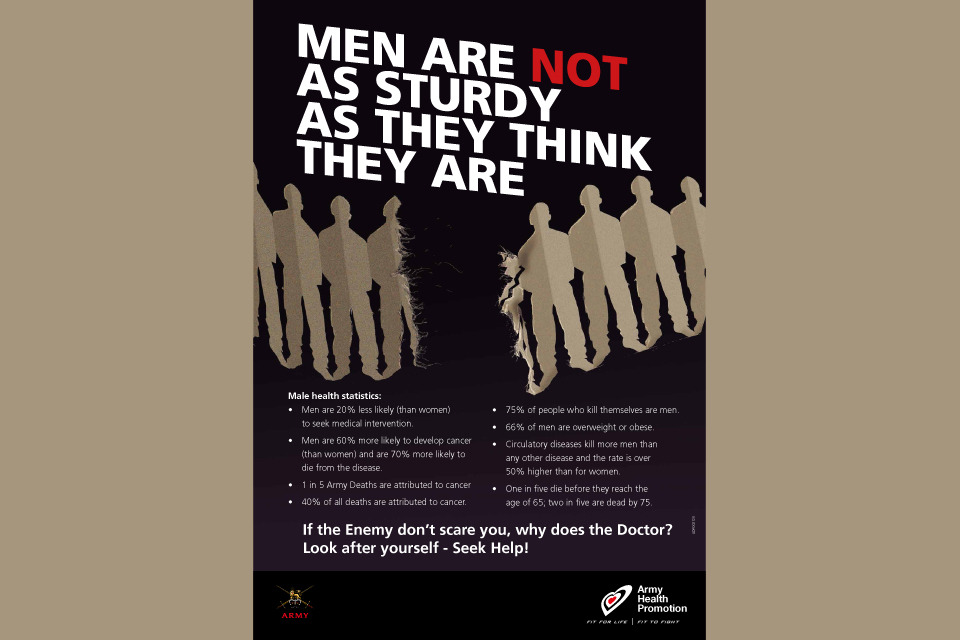Soldiers urged to check their 'kit'
Soldiers are being reminded to check personal 'equipment' as part of a new Army campaign to raise awareness of male-specific diseases.

'Private Parts' with members of the British Army rugby team, helping to raise awareness of testicular cancer [Picture: Corporal Steve Blake, Crown copyright]
Every year 20 soldiers are diagnosed with testicular cancer, which is becoming an ever-increasing issue in young men aged 20 to 35, the main age that our troops serve their country around the world. When caught early enough there is a 90% survival rate, but male soldiers are often less likely to seek medical help and instead try to ‘tough it out’.
The Army’s health awareness campaign initially focuses on testicular cancer and will encourage soldiers to think about their health differently.
A series of posters and leaflets aims to educate soldiers about how to carry out self-checks and point out what to look for. They will help raise awareness of male-associated diseases such as testicular and prostate cancer and let soldiers know where they can get more advice if they need it.
The campaign will kick off today, Saturday 27 April, at the annual Army versus Navy rugby match at Twickenham with the support of Andy Gomarsall, a former England rugby union player and member of the winning world cup team in 2003.

British Army men's health awareness campaign poster [Picture: Crown copyright]
Speaking ahead of the launch of the campaign, Mr Gomarsall said:
The aim of the campaign launch today is to raise awareness of some serious male health issues, specifically the reluctance to seek medical help. I’ve seen it throughout my professional rugby career in the locker rooms and there’s a similar attitude in the military.
Therefore today is a great opportunity to make sure those keeping our country safe also keep themselves safe.
Don’t die of embarrassment
Colonel Kevin Davies from 160 (Wales) Brigade, who has survived prostate cancer, said:
Today’s launch could not be more timely. Men’s health issues are at last getting the necessary profile, and to that end I commend the campaign.
I know from personal experience that diseases like testicular cancer and prostate cancer can have little warning but drastic consequences if not caught early. Often such diseases are not reported because men find them embarrassing to talk about.
My message is simple – don’t die of embarrassment, seek advice early, have the life-saving conversation with your healthcare professional, take ownership of your health, and be proactive.